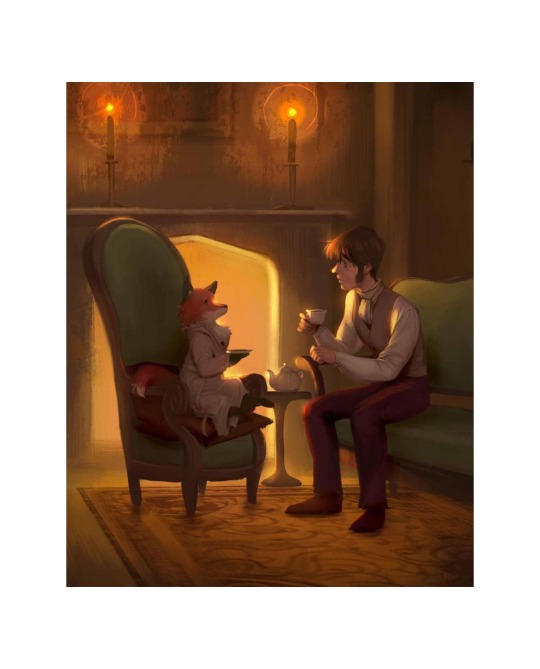#david garnett
Explore tagged Tumblr posts
Photo
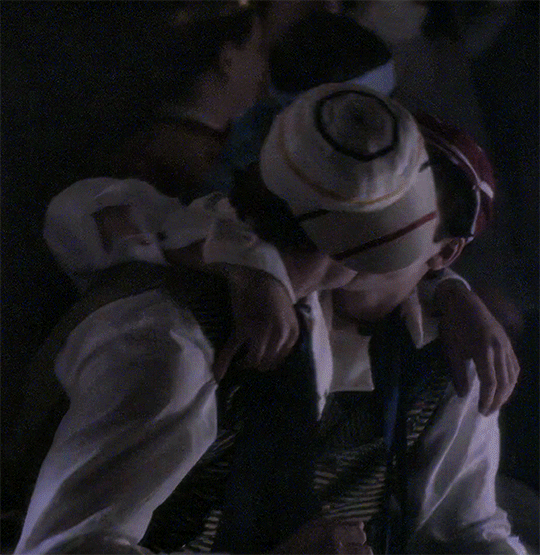


JAMES NORTON & BEN LLOYD-HUGHES 2015 • Life in Squares • S1·EP3 • dir. Simon Kaijser
#james norton#ben lloyd-hughes#perioddramaedit#lgbtedit#life in squares#kiss#lgbt#gay#duncan grant#david garnett#gay couple#early 1900s#period drama#bloomsbury set#bloomsbury group#couple#intimacy#affection#longing#desire#amor#passion#romantic#queer
355 notes
·
View notes
Text
BRIAN BLESSED as Augustus in I, Claudius voice:-
IS THERE ANYONE IN BLOOMSBURY WHO HAS NOT SLEPT WITH DUNCAN GRANT?!?!!!!
#the bloomsbury group#i clavdivs#i claudius#BRIAN BLESSED#duncan grant#yes i've been listening to the latest episode of you're dead to me#it was superb#holy shit though even by bloomsbury standards this guy got around#the bloomsberries#lytton strachey#john maynard keynes#arthur hobhouse#vanessa bell#david garnett#paul roche#etc.#homoflexible icon
14 notes
·
View notes
Text
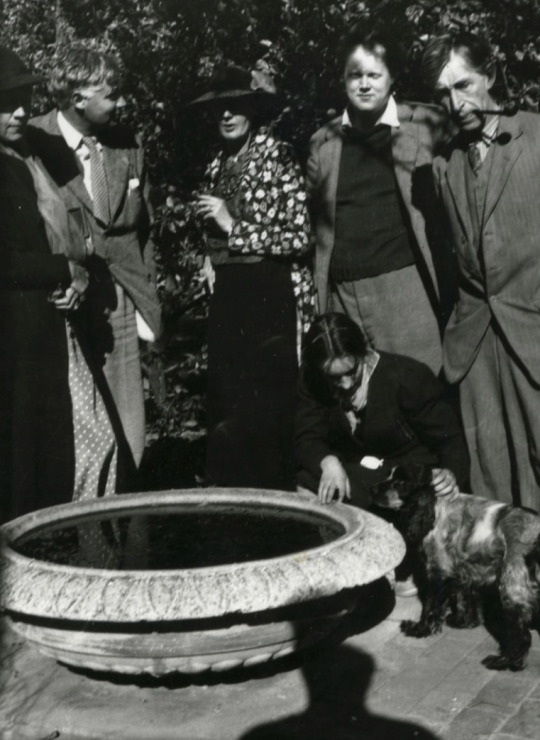
Vanessa Bell, David Garnett, Virginia Woolf, Quentin Bell, Leonard Woolf and Angelica Bell with Spaniel Sally at Monk's House, Rodmell
1940
#vanessa bell#david garnett#virginia woolf#quentin bell#leonard woolf#angelica bell#1940#1940s#vanessa age 61#me age 61
1 note
·
View note
Text










COOL: NBA
#nba#nba basketball#sports#icons#magic johnson#michael jordan#larry bird#wilt chamberlain#jerry west#hakeem olajuwon#shaquille o'neal#kobe bryant#dr j#julius erving#dave cowens#kevin garnett#kevin durant#lebron james#david robinson#patrick ewing#steph curry#cool#james worthy#charles barkley#nba on tnt#ernie johnson#kenny smith#eligin baylor#allen iverson#dawn staley
14 notes
·
View notes
Photo





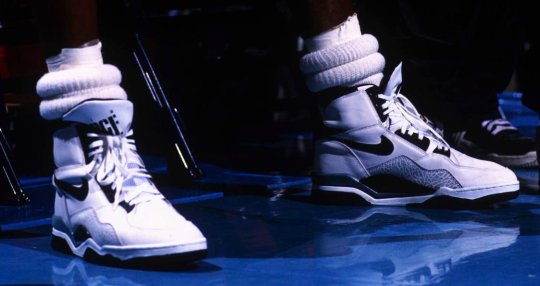

#Dikembe Mutombo#Gary Payton#Kevin Garnett#Magic Johnson#Mitch Richmond#David Robinson#Dennis Rodman#basketball#NBA#shoes
40 notes
·
View notes
Text
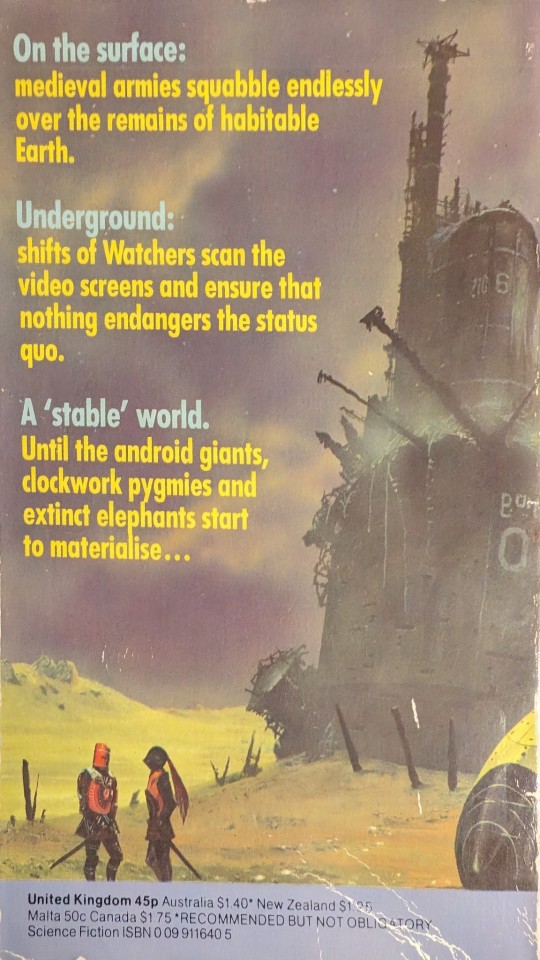
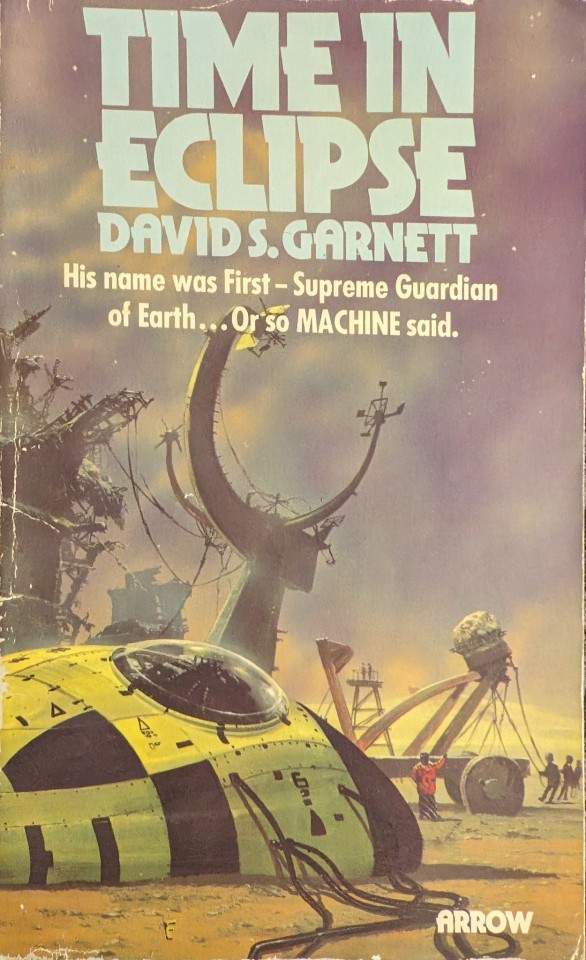
Time in Eclipse by David S. Garnett. 1974, cover art uncredited.
2 notes
·
View notes
Text
@blitzschnitz's most recent post made me remember another letter to S. L. Newcombe I really enjoy and need to share:


(The Selected Letters of T. E. Lawrence by David Garnett published in 1938, pages 799/800)
#“as i am feeling very fat and ugly”#has me crying#i adore his sillyness while writing to S. L.#lawrence of arabia#t e lawrence#t.e. lawrence#t. e. lawrence#history#t e shaw#t. e. shaw#selected letters#old letters
33 notes
·
View notes
Text
THIS DAY IN GAY HISTORY
based on: The White Crane Institute's 'Gay Wisdom', Gay Birthdays, Gay For Today, Famous GLBT, glbt-Gay Encylopedia, Today in Gay History, Wikipedia, and more … January 21



1885 – Duncan Grant (d.1978) was one of the major British artists of the twentieth century, as well as the sexual catalyst of that remarkable group of friends, the Bloomsbury Circle, which included, among others, writer Lytton Strachey and economist John Maynard Keynes, who were to be among Grant's lovers.
Born Duncan James Corrow Grant in Scotland into an artistically cultivated Scottish family prominent in governing the British empire, Grant as a child recognized his attraction to other boys and actively sought out sexual encounters with them.
Grant spent his childhood in India but returned to Britain in 1893. He travelled to Paris in 1906, where he studied with Jacques-Emile Blanche and became acquainted with Picasso and other influential artists of the time. In 1910, he returned to England to exhibit as a post-impressionist and then experimented with abstraction.
Famous for his use of color, he was called "the Matisse of Britain." His career flourished and his work was widely commissioned and collected by patrons, including Queen Elizabeth (the late Queen Mother), as well as by museums throughout the world.
Soon after World War II, the abstract school triumphed. Nevertheless, Grant had begun painting in a representational style, where his unabashed depictions of the male figure declared his sexual preference.

Bathers by the Pond
Throughout his life, Grant produced homoerotic sketches and paintings. When he was commissioned to decorate the Russell Chantry in Lincoln Cathedral in the late 1950s, he used his lover, the youthful, blond, physically beautiful Paul Roche, as the model for the face and body of Christ.
Despite the oppressiveness of British law and social attitudes condemning homosexuality, Grant lived openly as a gay man. "Never be ashamed," he liked to say. He remarked that his moral sensibility came from the Regency period, the pre-Victorian era noted for its relaxed sexual mores.
Although unabashedly homosexual in orientation, Grant was the object of desire of men and women alike. The painter Vanessa Bell, for example, with whom Grant and her husband art critic Clive Bell, shared a Sussex farmhouse for many years, fell in love with him.
Grant reluctantly yielded when she climbed into bed with him. She became pregnant and, in 1918, gave birth to a daughter she named Angelica. Grant neither acknowledged nor denied his paternity. However, when Angelica was a teenager, Vanessa told her that Grant was her father.
The young woman was traumatized with outrage and bitterness. After her mother's revelation, Angelica initiated an affair with and later married writer David Garnett, whom she knew to have been Grant's lover at the time of her conception.
Grant died peacefully on May 9, 1978, at the age of 92, in the arms of his companion, the poet Paul Roche. Grant's will divided his estate, including the copyrights to his work, between Roche and Angelica Garnett.
Unfortunately, Garnett has used this power to restrict and generally deny permission to reproduce Grant's work. As a result, the artist remains something of a ghostly figure, despite the resurgent interest in representational art and the perennial fascination with Bloomsbury.
*****
In 2020, an extraordinary stash of more than 400 erotic drawings by Duncan Grant that was long thought to have been destroyed came to light, secretly passed down over decades from friend to friend and lover to lover.
In the 1940s and 50s Grant made hundreds of drawings, many of them explicit and often influenced by Greco-Roman traditions as well as contemporary physique magazines.

One of the sketches
In May 1959, Grant gave his friend Edward le Bas a folder marked “these drawings are very private”. The mythology in Bloomsbury circles is that the drawings were later destroyed, probably by Le Bas’s sister. That was that, until Nathaniel Hepburn, the director of Charleston, the beautiful Sussex farmhouse Grant and Vanessa Bell called home, was contacted with an offer of the drawings.
The offer came from the retired theatre designer Norman Coates, who for years stored the drawings in plastic folders under his bed.
Coates said the drawings were “extraordinary, so in your face. You can’t avoid them. When I’ve occasionally brought them out to show selected friends after dinner, after the initial ‘My God’ exclamation at these very explicit drawings, they mellow … the sexual element really doesn’t dominate.
“It is the painting and the skill of his drawing and the aesthetic of it which negates the sexiness of them. It becomes irrelevant that the subject is what it is … it is a very odd feeling. It just becomes a beautiful collection of pictures.”
Coates was left the drawings by his partner, Mattei Radev, who died in 2009. Radev, a Bloomsbury mainstay who as a younger man had had a secret and tortured affair with E.M. Forster, was left them by Eardley Knollys, who died in 1991.
Knollys, who ran the influential Storran gallery in London and had an affair with Jean Cocteau, was given them by Le Bas, a painter. Le Bas was given them by Grant, a man who the economist John Maynard Keynes briefly thought might be the love of his life.
Hepburn said the drawings were often explicit fantasies but, as a whole, they were something more. “They are, I think, a body of work that talks of love. Of course at a time they were made, that is a love that was illegal,” he said. “He was never able to share the works. How we see them now will be very different.”


1895 – The best known Spanish fashion designer, Cristóbal Balenciaga was born (d.1972). Regarded as the master of fashion, his classic designs inspired the fashion industry throughout most of the twentieth century and continue to exert influence.
Born in Guetaria, near San Sebastian, Spain, Cristóbal Balenciaga Eisaguirre was the son of a fisherman. He studied needlework and dressmaking with his mother until 1910. In 1915, he established his own tailoring business under the sponsorship of Marquesa de Casa Torres. By the early 1930s he had established a reputation as Spain's leading couturier. Following the outbreak of the Spanish Civil War in 1936, Balenciaga closed his three couture houses and left Spain. After a brief stay in London, Balenciaga settled in Paris and in 1937 opened The House of Balenciaga on Avenue George V.
Balenciaga never married. This fact, coupled with his career in fashion, has led to speculation and rumors about his sexuality. A deeply private man, he never discussed his personal life publicly. One particular incident reported by writer Jacqueline Demornex may, however, throw a little light on his sexuality. After an argument between the couturier Coco Chanel and Balenciaga, Chanel allegedly made the following observation to a mutual friend: "It is obvious that he dislikes them (women); look at the way he conceals blouses under suits, just to expose the wrinkles in their necks." Inasmuch as such charges are frequently made against gay male designers, Demornex ponders why Chanel attacked Balenciaga in such a way: was it his age, his way of dressing women, or his private life?
So flattering were Balenciaga's creations that women often ordered more than one of each design so that they could wear one while the other was being cleaned or so they could keep one at each of their houses. Remembered as a master of black, Balenciaga often favored a muted palette of colors, especially a combination of black and brown, inspired by the traditional dress of his native Spain. Spain was also the source and inspiration for his use of lace, his heavy embroidery with jet-encrusted trimmings, as well as the brilliant whites and the drama and dignity of stiff formal fabrics reminiscent of those painted by Goya and Velásquez.
In 1968 Balenciaga closed his business rather than see it compromised in a fashion era he did not respect. He retired to Spain and died in 1972.


1905 – Fashion designer and icon Christian Dior was born on this date (d.1957). He was born in Granville, Manche, Normandy, France, the younger son of Maurice Dior, a manufacturer of fertilizer and chemicals, and his wife, the former Madeleine Martin. Dior had an elder brother, Raymond, whose daughter was the Nazi sympathizer Françoise Dior. Acceding to his parents' wishes, Dior attended the Ecole des Sciences Politiques from 1920 to 1925. The family, whose fortune was derived from the manufacture of fertilizer, had hopes he would become a diplomat, but Dior only wished to be involved in the arts. After leaving school he received money from his father so that in 1928 he could open a small art gallery, where he sold art by the likes of Pablo Picasso and Max Jacob. After a family financial disaster that resulted in his father losing his business, Dior was forced to shut down the gallery.
In the 1930s Dior made a living by doing sketches for haute couture houses. In 1938 he worked with Robert Piguet and later joined the fashion house of Lucien Lelong, where he and Pierre Balmain were the primary designers. In 1945 he went into business for himself, backed by Marcel Boussac, the cotton-fabric magnate. Dior's fashion house opened in December 1946, and the following February, he presented his first collection, known as Corolle. It was more famously known as the New Look. The actual phrase the "New Look" was coined by Carmel Snow, the powerful editor-in-chief of Harper's Bazaar. Dior's designs were more voluptuous than the boxy, fabric-conserving shapes of the recent World War II styles, influenced by the rations on fabric. He was a master at creating shapes and silhouettes; Dior is quoted as saying "I have designed flower women." His look employed fabrics lined predominantly with percale, boned, bustier-style bodices, hip padding, wasp-waisted corsets and petticoats that made his dresses flare out from the waist, giving his models a very curvaceous form. The hem of the skirt was very flattering on the calves and ankles, creating a beautiful silhouette. Initially, women protested because his designs covered up their legs, which they had been unused to because of the previous limitations on fabric. There was also some backlash to Dior's designs form due to the amount of fabrics used in a single dress or suit--during one photo shoot in a Paris market, the models were attacked by female vendors over the profligacy of their dresses--but opposition ceased as the wartime shortages ended. The New Look revolutionized women's dress and reestablished Paris as the center of the fashion world after World War II.
Dior died at the health spa town Montecatini. Some reports say that he died of a heart attack after choking on a fish bone. Time magazine's obituary stated that he died of a heart attack after playing a game of cards. However, the Paris socialite and Dior acquaintance Alexis von Rosenberg, Baron de Rédé stated in his memoirs that contemporary rumor had it that the fashion designer succumbed to a heart attack after a strenuous sexual encounter with two young men. His companion, at the time of his death, was an Algerian-born singer, Jacques Benita.


1959 – Antonio D'Amico is an Italian model and fashion designer.
D'Amico was born in Mesagne, in the Italian province of Brindisi, and later lived in Milan. He was hired as a part-time office administrator for his first job. He met Gianni Versace in 1982, and the couple eventually embarked on a long-term relationship that lasted 15 years, until Versace's murder in 1997. During that time, he worked as designer for the Versace Sport line. D'Amico now runs his own fashion design company.Versace's will left D'Amico with a pension of 50 million lira a month for life, and the right to live in any of Versace's homes in Italy and the United States. However, since the properties that were left to D'Amico in Gianni's will actually belonged to the company, the homes belonged to Versace's sister Donatella, brother Santo, and his niece, Allegra after his death. After working out agreements with lawyers, D'Amico obtained a fraction of the pension and a restricted right to live in Gianni's properties. D'Amico's relations with the rest of the Versace family have not always been easy; Donatella said in March 1999,
"My relationship with Antonio is exactly as it was when Gianni was alive. I respected him as the boyfriend of my brother, but I never liked him as a person. So the relationship stayed the same."


1966 – Time Magazine publishes an unsigned two-page article, "The Homosexual in America." The article includes statements such as "[Homosexuality] is a pathetic little second-rate substitute for reality, a pitiable flight from life. . . . it deserves no encouragement . . . no pretense that it is anything but a pernicious sickness."


1988 – John Early is an American comedian and actor. He has appeared on 30 Rock as Jenna Maroney's son and in the independent film Fort Tilden. He stars in Search Party, which was written partly by Michael Showalter and also stars Alia Shawkat.
Early was featured on Lauren Lapkus' podcast (Episode #41, August 28, 2015), as well as Wet Hot American Summer: First Day of Camp, which was released on Netflix in the summer of 2015. He tours around the country with his stand-up/variety show "Literally Me" and also hosts a monthly variety event (called Showgasm) at Ars Nova in New York City. He has made voice appearances on two episodes of Bob's Burgers as brunch blogger Dalton Crespin.
Early frequently collaborates with comedians such as Hamm Samwich and Kate Berlant in a variety of sketch and filmed presentations. In 2016, he wrote and starred in his own 30-minute episode of the sketch show Netflix Presents: The Characters. He also had a small role as Evan in the 2017 comedy Beatriz at Dinner, starring Salma Hayek and John Lithgow.
Early is from Nashville, Tennessee. His father was a Presbyterian minister; his mother, a minister of the Disciples of Christ. He attended the University School of Nashville. He graduated from New York University where he majored in Acting. He is gay.


Javier Calvo and Javier Ambrossi
1991 – Javier Calvo Guirao is a Spanish actor, stage director, and film director. He is the best known for his role of Fernando "Fer" Redondo in the Antena 3 series Física o Química and for creating and directing the musical La llamada together with Javier Ambrossi, as well as co-directing its film adaptation.
Calvo began acting in theatre at age 11, eventually appearing in 2007 in the film Doctor Infierno. Beginning in 2008, he starred in the Antena 3 television series Física o Química, portraying gay teenager Fernando "Fer" Redondo. Focusing on problems such as drugs, addictions, anorexia and sexual orientation, the series attracted much controversy. Calvo considers the themes of the series "problems that are also present in reality". He, however, received critical acclaim for portraying a gay male in his debut role.
Since 2010, Calvo has been in a relationship with actor and director Javier Ambrossi.


2009 – The Swedish parliament was presented with legislation that would allow Gay couples to marry in civil ceremonies or in the Lutheran Church, which until 2000 was the official church of Sweden. "The main proposal in the motion is that ... a person's gender will no longer have any bearing on whether they can marry. The marriage law and other laws concerning spouses will be rendered gender neutral according to the proposal," a statement from Prime Minister Fredrik Reinfeldt's conservative Moderates said.
The proposal had wide backing in parliament and is expected to be adopted, though a date has yet to be set for a vote. While heterosexuals in Sweden can choose to marry in either a civil ceremony or a church ceremony, homosexuals are currently only allowed to register their "partnerships" in a civil ceremony. Civil unions granting Gays and Lesbians the same legal status as married couples have been allowed in Sweden since 1995. If the new legislation is adopted, Sweden, already a pioneer in giving same-sex couples the right to adopt children, would become the first country in the world to allow Gays to marry within a major Church. Under the proposal, Lutheran pastors will be able to opt-out of performing Gay marriages if they have personal objections.


2009 – ABC television station in Los Angeles refused to air a Public Service Announcement about Gay Families claiming it was "too controversial" to run during inauguration coverage. KABC-TV in Los Angeles refused to run public service announcements from Get To Know Us First, a group that promotes acceptance of LGBT families.


2013 – President Obama made the first mention of gay rights in a U.S. inaugural address. The text of President Obama’s Inauguration speech reads: "It is now our generation’s task to carry on what those pioneers began. [. . .] Our journey is not complete until our gay brothers and sisters are treated like anyone else under the law — for if we are truly created equal, then surely the love we commit to one another must be equal as well."


19 notes
·
View notes
Text
Excerpt from this story from Mother Jones:
The Arctic National Wildlife Refuge (ANWR) is one of the Earth’s last intact ecosystems. Vast and little-known, this 19 million-acre expanse along Alaska’s north slope is home to some of the region’s last remaining polar bears, as well as musk oxen, wolvesm and wolverines. Millions of birds from around the world migrate to or through the region each year, and it serves as the calving grounds for the porcupine caribou.
Donald Trump has called the refuge the US’s “biggest oil farm.”
The first Trump administration opened 1.5 million acres of the refuge’s coastal plain to the oil and gas industry, and under Trump’s watch, the US government held its first-ever oil and gas lease sale there.
In a few weeks, when Trump takes office again, the refuge–one of the last truly wild places in the world–is awaiting an uncertain future.
The president-elect has promised to revive his crusade to “drill baby drill” on the refuge as soon as he returns to the White House in January, falsely claiming it holds more oil than Saudi Arabia. Project 2025, the conservative Heritage Foundation’s blueprint for Trump’s second term, calls for an immediate expansion of oil and gas drilling in Alaska, including in the ANWR, noting that the state “is a special case and deserves immediate action.”
From his end, Joe Biden is moving to limit drilling in the region as much as his administration can. Experts are debating how much oil and gas there is to gain if Trump were to open up the region for drilling again. But Alaska’s Republican governor and Native Alaskan leaders in the region say they are eager to find out—seeing the potential for a major new source of revenue in the geographically remote region.
Other Native leaders and activists have banded with environmental groups that oppose drilling on the refuge and are gearing up for an arduous battle.
“I see it as a David and Goliath fight,” said Tonya Garnett, a spokesperson for the Gwich’in steering committee, representing Gwich’in Nation villages in the US and Canada. “But we are resilient, and we are strong, and we’re going to keep fighting.”
7 notes
·
View notes
Text
any dostoevsky loving bloggers on here , whats the best translation of crime & punishment? im reading constance garnett right now (it was the only one that was at my schools library) & i like it so far but i hear that there are some problems with her translation & i should read someone else's, but i keep getting mixed opinions on whether certain translations are good or not .
i read a little preview of jessie coulson's translation & really liked it but i couldnt find it at the bookstore or on any of the book thrifting websites i normally use . i did see david mcduff's translation though & some ppl seem to recommend him . i just wanna be able to read a faithful but still understandable translation where i dont miss anything from the original
#im probably just going to continue garnett's version for now until i get my hands on a copy of a different translation bc ive already#checked it out anyway#txt#crime and punishment#fyodor dostoevsky
16 notes
·
View notes
Text
With A Martyr Complex: Reading List 2024
Adapted from the annual list from @balioc, a list of books (primarily audiobooks) consumed this year. This list excludes several podcasts, but includes dramatizations and college lecture series from The Great Courses, which I consume like a somewhat normal person this time around, but normally I'm a weirdo about them.
Myth in Human History by Grant L. Voth, from The Great Courses
Lud-in-the-Mist by Hope Mirrlees
Augustine: Philosopher and Saint by Phillip Cary, from The Great Courses
The Broken Sword by Poul Anderson
A Wizard of Earthsea by Ursula K. Le Guin
Democracy and Its Alternatives by Ethan Hollander, from The Great Courses
Sex in the Middle Ages by Usman T. Malik, from The Great Courses
The Pauper Prince and the Eucalyptus Jinn by Usman T. Malik
The Fellowship of The Ring by J.R.R. Tolkien
The Two Towers by J.R.R. Tolkien
The Return of The King by J.R.R. Tolkien
Tibet: History, Culture, Religion by Constance Kassor, from The Great Courses
Maoism: A Global History, by Julia Lovell
The Three-Problem by Cixin Liu, translated by Ken Liu
Doppleganger: A Trip Into The Mirror World by Naomi Klein
The Dark Forest by Cixin Liu, translated by Joel Martinsen
Would You Baptise an Extraterrestrial?...and Other Questions from the Astronomers' In-Box at the Vatican Observatory by Guy Consolmagno SJ and Paul Meuller SJ
Death's End by Cixin Liu, translated by Ken Liu
Other Minds: The Octopus, THe Sea, and The Deep Origins of Consciousness by Peter Godfrey-Smith
Ugaritic Texts: Ba'al Cycle, translated by the Scriptural Research Institute
The Gambler by Fyodor Dostoevsky, translated by Constance Garnett
Propaganda and Persuasion by Dannagal G. Young, from The Great Courses
Some Desperate Glory by Emily Tesh
War in the Modern World by David R. Stone
Bad Blood: Secrets and Lies in a Silicon Valley Startup by John Carreyrou
Fancy Bear Goes Phishing: The Dark History of the Information Age, in Five Extraordinary Hacks by Scott J. Shapiro
Ninefox Gambit by Yoon Ha Lee
The Great Gamble: The Soviet War in Afghanistan by Gregory Feifer
The Unbroken by C. L. Clark
Norse Mythology by Jackson Crawford, from The Great Courses
She Who Became The Sun by Shelley Parker-Chan
The Field of Blood: Violence in Congress and the Road to Civil War by Joanne B. Freeman
All Systems Red by Martha Wells
The Man Who Broke Capitalism: How Jack Welch Gutted The Heartland and Crushed The Soul of Corporate America--and How to Undo His Legacy by David Gelles
Monstrous Regiment by Terry Pratchett
God against the Gods: The History of Monotheism and Polytheism by Robert Garland, from The Great Courses
Raven Stratagem by Yoon Ha Lee
A Desolation Called Peace by Akrady Martine
The Autobiography of Benvenuto Cellini by Benvenuto Cellini, translated by John Addington Symonds
The Monster Baru Cormorant by Seth Dickinson
Moby Dyke: An Obsessive Quest to Track Down the Last Remaining Lesbian Bars in America by Krista Burton
When the Clock Broke: Con Men, Conspiracists, and How America Broke Up in the Early 1990s by John Ganz
Anything For A Vote: Dirty Tricks, Cheap Shots, and October Surprises in US Presidential Campaigns by Joseph Cummins
The Wicked and The Willing by Lianyu Tan
Perfume: The Story of a Murderer by Patrick Suskind
America after the Cold War: The First 30 Years by Patrick N. Allitt, from The Great Courses
The Aldo Moro Affaire by Jacopo Pezzan and Giacomo Brunoro, translated by a robot who could have done a better job quite frankly
Collapse: The Fall of the Soviet Union by Vladislav M. Zubok
The Shadow of The Torturer by Gene Wolf
Economics, 3rd Edition by Timothy Taylor
The Poetic Edda, translated by Jackson Crawford
Evgenii Onegin by Alexander Pushkin, translated by Mary Hobson (alternately titled Eugene Onegin)
Incomplete books: The Dragon: Fear and Power, Pilgermann, What Makes This Book So Great, Midnight's Children, Deng Xiaoping and the Transformation of China, Heaven and Hell, Maya to Aztec: Ancient Mesoamerica Revealed, The Last Emperor of Mexico, A Knight of the Seven Kingdoms, Autumn in the Heavenly Kingdom, Emperor of Japan
---
Great Courses consumed: 7
Non-Great Courses Nonfiction consumed: 19
---
Works consumed by women: 14 or 15 (C.L. Clarke uses both they and she pronouns, counting is hard)
Works consumed by men: 35 or 36
Works consumed by men and women: 1
Works that can plausibly be considered of real relevance to foreign policy (including appropriate histories): 10
---
With A Martyr Complex’s Choice Award, fiction division: Perfume: The Story of A Murderer
>>>> Honorable mention: The Dark Forest, Lud-in-the Mist, The Lord of The Rings, Ninefox Gambit, The Shadow of the Torturer, She Who Became The Sun, The Broken Sword, The Wicked and The Willing, All Systems Red
With A Martyr Complex’s Choice Award, nonfiction division: Collapse: The Fall of the Soviet Union
>>>> Honorable mention: War in the Modern World, Norse Mythology, The Man Who Broke Capitalism, The Autobiography of Benvenuto Cellini, Economics, When The Clock Broke
>>>> Great Courses Division: Tibet: History, Culture, Religion
The Annual “An Essential Work of Surpassing Beauty that Isn’t Fair to Compare To Everything Else” Award: Evgenii Onegin
>>>> Honorable mention: The Gambler
The “Reading This Book Will Give You Great Insight Into The Way I See The World” Award: The Gambler
>>>> Honorable mention: The Field of Blood: Violence in Congress and the Road to Civil War
Yes, okay? It IS Good After All and I was wrong to be a Hater: The Lord of The Rings
Best "Lesbian War Crimes" Book: Ninefox Gambit
Best Lesbian: Ma Xiuying (She Who Became The Sun)
Best War Crime: Mutually Assured Destruction by Antimatter Bullets (Death's End)
---
This year I got a bit better at reading non-audiobooks, thought not as much as I had hoped, but I feel as though if I were putting more time into it the divide could be overcome. However, I also read far fewer audiobooks this year, in part due to that same promotion at work, in part due to The Election, in part due to falling into bad habits. An easy goal for next year is just working on getting out of that habit. I did manage to hit my target at the end, at least.
I took up the intellectual project of reading "Lesbian War Crimes" Science Fiction/Fantasy books, which had a pretty dramatic effect on the layout of my books for the year. Suffice to say, picking up a contemporary genre is not as Good For Me as reading from wide sources which include international literature and The Classics. Some were real hits though.
My own creative output was not as large as I wanted but it was consistently of relatively high quality and originality, which I think was good. My attempt at a novel failed out of the gate, but I can take a stab at another one in the new year.
Goals for next year: learn some econ, more literary fiction, get a novel down
2 notes
·
View notes
Text
When all the books are gone...
When all the books are gone, there will be nothing to remember but a single porch light at the far end of the road where something live is moving in the snow, a woman, or a fox, it’s hard to say.
Last day of birdsong; salt rain in the trees; the echo of someone going about their business, making good or making hay – you never know for sure, although you know that something here is coming to an end:
last day of weather, lanternlight crossing the yards, last of those stories our kinfolk used to tell of woman into fox, fox into deer, deer into shadow and, always, the silence to come.
— John Burnside, "As if from the end times (Homage to David Garnett)" in "John Burnside wins the 2023 David Cohen prize for amazing body of work" by Ella Creamer (The Guardian, November 9, 2023)
7 notes
·
View notes
Text


I was going crazy trying to find the above quote which the gwendolyn macewan poem is based on I was so sure it was in the mint but spoiler alert like always when it's a lawrence quote i can't place it's from david garnett's letters
5 notes
·
View notes
Text
I decided to re-read Crime and Punishment. (I've been really hyped for a re-read basically since I read it) And it reminded me of my first read where I read half of the book on Project Gutenberg, and then decided I wanted to read a paper copy.
My school had it in its inventory, but it had been *stolen*, and was now missing. It also wasn't available at my local public library. I think it was also *missing* and gone, but it may have been checked out. I didn't really know how to use the library website at the time.
Anyway, so I finally decided to order a copy. But when I opened it, and tried to find my place, something didn't seem right. And then I realized: The Translator. I was new to translated novels and had forgotten to check who the translator was before I bought the book. And of course I was on the verge of tears, because I had been reading CRIME AND PUNISHMENT, and that was just my state of mind at the time.
So I finally got the "right" translation. And everything was fine. That was the Constance Garnett version. Now I'm trying to read the David McDuff version since I really liked his translation of The Brothers Karamazov, but it still doesn't feel right. I think I just haven't acclimated yet, I've only read chapter 1.
5 notes
·
View notes
Note
What is the best English translation of Dostoyevsky? I checked your blog to see if you've already answered it, but couldn't find.
Great question, and my answer is that it depends on a lot of factors--your preference included, as well as which novel/story.
Richard Pevear and Larissa Volokhonsky are the most well-known modern ones, and they've translated most of his well-known works. I would recommend this one if you like crisp, clear writing that may not be overly stylistic but to the point. If English isn't your first language either but you want to read it in English, this is a good one.
Constance Garnett translated most of Dostoyevsky's works back in the early 1900s. I actually prefer this translation of Crime and Punishment in a lot of ways, although the prose can be a bit more old-fashioned.
For Demons, though, Garnett mistranslated the title (The Possessed isn't nearly as accurate a title as Demons or The Devils). my favorite translation is actually Michael Katz's Devils.
David McDuff is also a good translator, and honestly I prefer him to Pevear and Volokhonsky in general.
The only one I'd stay away from is David Magarshack's translations, because he like... didn't even like Dostoyevsky, which comes across in his translations.
11 notes
·
View notes
